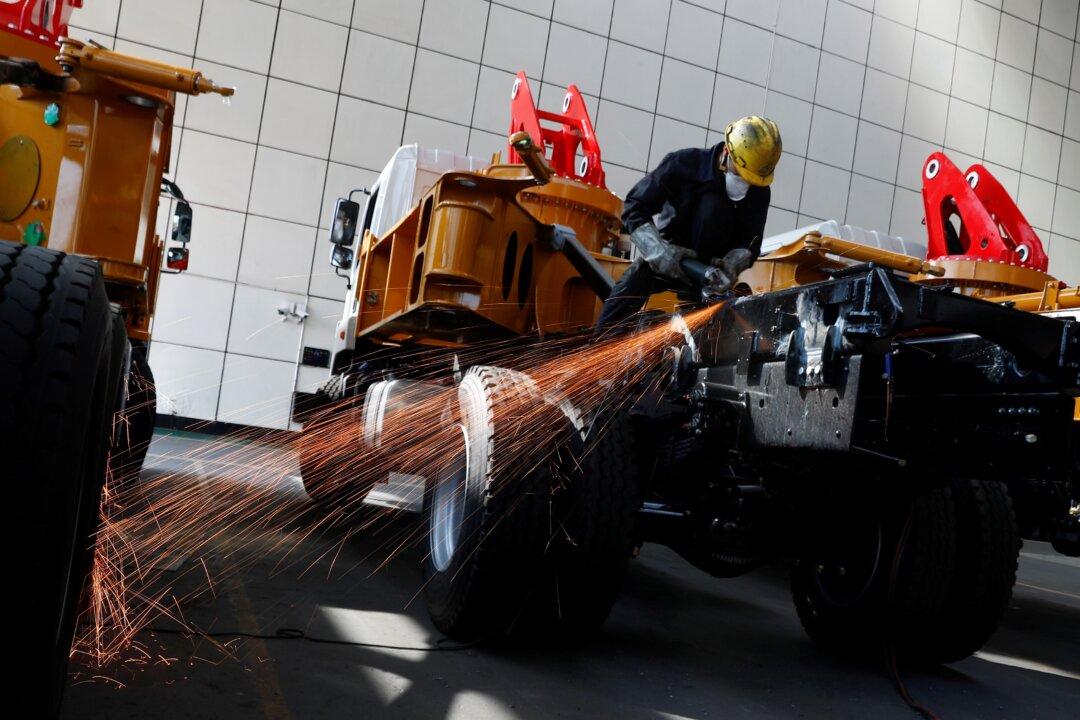The United States has fallen behind China and numerous other countries in its global share of key industrial sectors, according to several experts in technology and industrial policy.
U.S. global shares in high-value industries have fallen so dramatically that the nation now ranks just above Italy and behind Mexico in a list of key advanced industries, said experts at an April 27 industrial strategy conference hosted by the Information Technology and Innovation Foundation (ITIF) think tank.




